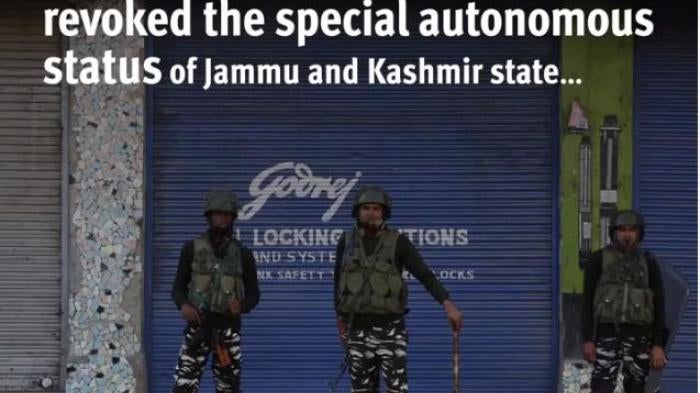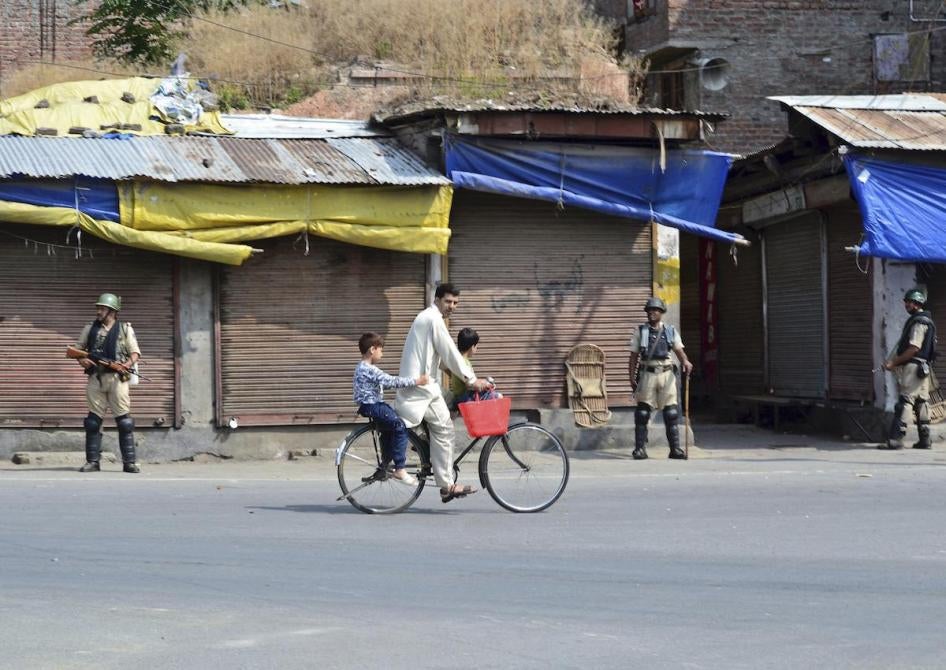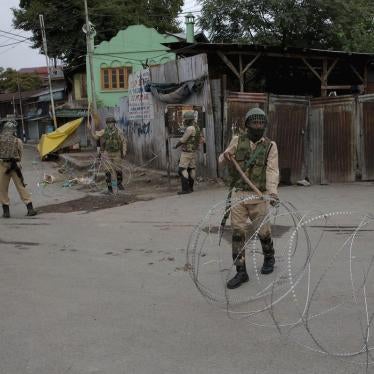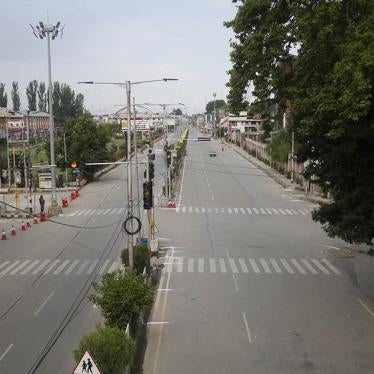(New York) – The Indian government should ensure that rights are protected after lifting some restrictions in Jammu and Kashmir State, Human Rights Watch said today. The government announced that it had partially restored landline connections, reopened schools, and withdrawn the ban on large gatherings. The government imposed the restrictions after it revoked the state’s special autonomous status on August 5, 2019, and split it into two federally governed territories.
The authorities reported violent protests in which eight people were injured over the weekend of August 17-18. Hundreds of political leaders and activists remain in detention, including many outside Kashmir, without access to family members or legal counsel. The government has acknowledged only a “few preventive detentions,” to maintain “law and order and avoid breach of the peace.” While the authorities said on August 16 that landlines would be restored in Muslim majority areas, access to mobile phones and the internet is still denied in much of the region.
“The Indian government can’t just claim to be lifting restrictions in Kashmir, but needs to ensure that everyone’s rights are respected,” said Meenakshi Ganguly, South Asia director at Human Rights Watch. “Officials should cease using broad, repressive means to curtail the flow of information, or to prevent people from peacefully assembling and expressing their views.”

On August 5, the authorities shut down all forms of communication in Jammu and Kashmir, including internet, cell phones, and landlines. The government also imposed broad restrictions on freedom of movement and banned public meetings. The disruption to internet and telecommunication services has exacerbated an information blackout, while the restrictions on movement placed vulnerable people at risk, hindering access to crucial medical care and other services.
The authorities also asked the social media site Twitter to suspend some accounts for allegedly spreading false information. The United Nations special rapporteur on freedom of expression and opinion, David Kaye, expressed concern over the current communication clampdown.
India is obligated under international human rights law to ensure that internet-based restrictions are provided by law and are a necessary and proportionate response to a specific security concern. The UN Human Rights Council in July 2016 condemned measures to intentionally prevent or disrupt access to or dissemination of information online, and said that all countries should cease such measures.
There have been reports of sporadic protests in Kashmir since August 5, and of security forces using pellet shotguns that have led to about a dozen injuries. The use of pellet-firing shotguns as a crowd-control weapon in Kashmir has received widespread condemnation because of the large number of protester deaths and injuries.
The Indian government should publicly direct the security forces to abide by the UN Basic Principles on the Use of Force and Firearms by Law Enforcement Officials and take all other necessary steps to ensure that the forces act with restraint, Human Rights Watch said. Protest organizers should take steps to deter their supporters from engaging in violence against members of the public and law enforcement officers.
Agence France-Presse reported that the authorities have detained thousands of Kashmiris under the Public Safety Act, a controversial law that allows detention for up to two years without charge or trial. On August 15, the authorities detained Shah Faesal, a Kashmiri politician, a day after he gave an interview to the media criticizing the government’s decision. Local activists issued a fact-finding report saying that children had been detained as well.
The government should periodically release lists of those detained, inform families of their whereabouts, and ensure that detainees have proper access to their families and legal counsel, Human Rights Watch said. International human rights law generally prohibits detention without charge and requires prompt and regular judicial review to prevent arbitrary detention.
The government says it has adopted these measures to ensure law and order. Accusing Pakistan of instigating violent protests and militant attacks, the government has also deployed tens of thousands of additional troops to the region. On August 16, the United Nations Security Council held a closed-door consultation to discuss increasing tensions between India and Pakistan over the disputed region.
In July, the Office of the UN High Commissioner for Human Rights released a 43-page report raising serious concerns about abuses by state security forces and armed groups in both Indian and Pakistani parts of Kashmir. The UN found that Indian security forces often used excessive force to respond to violent protests that began in July 2016. And it decried the lack of justice for past abuses such as killing and forced displacement of Hindu Kashmiri Pandits, enforced disappearances, and alleged sexual violence by Indian security forces personnel. The Indian government dismissed the report as a “false and motivated narrative” that ignored “the core issue of cross-border terrorism.”
“Instead of denying human rights violations, Indian authorities should draw lessons from past mistakes, ensure accountability, and act to prevent further abuses,” Ganguly said. “Concerned governments and the United Nations should press India to implement the High Commissioner’s recommendations and to protect the human rights of all in Kashmir.”









